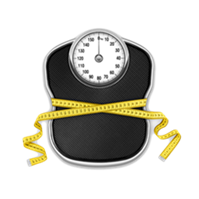Weight loss can have a significant impact on A1c levels, which is a measure of long-term blood sugar control. A1c is a test that measures the average level of blood sugar (glucose) over the past two to three months. The test is often used to diagnose and monitor diabetes and prediabetes. The higher your A1c level, the higher your risk of developing diabetes-related complications such as heart disease, kidney damage, and nerve damage.
Weight Loss Programs To Help You Lose Weight
Weight loss can lower your A1c levels in several ways. One of the main ways is by helping you to lose body fat. Excess body fat, especially in the abdominal area, can lead to insulin resistance. Insulin resistance is when your body’s cells don’t respond normally to insulin, which can lead to high blood sugar levels. Losing body fat can help to improve insulin sensitivity, which can lower your A1c levels.
Another way that weight loss can lower your A1c is by helping you to reduce your calorie intake. When you lose weight, you are also likely to reduce the number of calories that you eat. Eating fewer calories can help to lower your blood sugar levels, which can in turn lower your A1c levels. Additionally, eating a diet that is low in processed foods, added sugars, and refined carbohydrates can also help to lower your A1c levels.
Weight loss can also help to lower your A1c levels by increasing your physical activity. Exercise can help to lower your blood sugar levels by promoting the uptake of glucose by your muscles, as well as by increasing your insulin sensitivity. Additionally, regular physical activity can help to improve your overall health and reduce your risk of diabetes-related complications.
In addition to weight loss, there are other lifestyle changes that can help to lower your A1c levels. These include:
- Eating a healthy diet that is high in fruits, vegetables, whole grains, and lean proteins
- Limiting your intake of processed foods, added sugars, and refined carbohydrates
- Quitting smoking
- Limiting your alcohol intake
- Managing your stress levels
It’s important to note that while weight loss can be an effective way to lower A1c levels, it may not be the only solution. Genetic factors and other underlying health conditions can also affect A1c levels. If you are concerned about your A1c, it’s important to talk to your doctor about the best course of action for you. They may recommend additional lifestyle changes, medications, or a combination of both to help manage your A1c levels.
In conclusion, weight loss can be an effective way to lower A1c levels. By helping you to lose body fat, reducing your calorie intake, increasing your physical activity, and making other healthy lifestyle changes, you can help to improve your insulin sensitivity and lower your blood sugar levels, which can in turn lower your A1c levels. However, it’s important to consult with your doctor to determine the best approach for you, as weight loss may not be the only solution for managing A1c levels, and it’s important to monitor and manage blood sugar levels to prevent diabetes-related complications.







